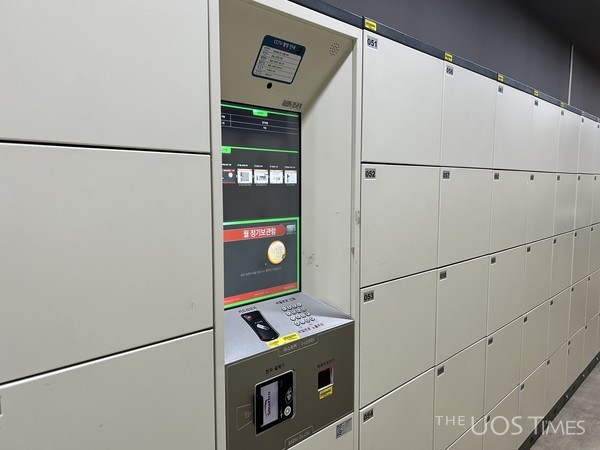
“Is there anyone who can hand over a locker? I am currently looking for somebody who is willing to sell an allocated locker. Please contact me. I am ready to pay whatever you demand.” Recently, numerous posts looking for locker deals have been uploaded on Everytime, a UOS online community. The number of students using the Central Library increased exponentially this year, and as a result, there was considerable demand from students who wanted to use lockers in the library, which led to a “Locker War.”
Most universities lend library lockers to students for a fee. The assignment procedure is held at the beginning of the semester, usually on a raffle or first-come, first-served on-site registration. The demand always exceeds supply as the library has a limited number of lockers installed. The same is the case in UOS. On March 5 and 15, the Student Welfare Committee announced the assignment result for lockers in Central Library. Students who won the raffle were allowed to use a locker for the entire year. The draw was highly competitive as most of the lectures were held in-person.
Some students who failed to get a locker did not give up and continued trying to obtain lockers on the “black market.” Lockers are being traded at ten-fold higher prices compared to what the school charges. The shortage of lockers is expected to continue as the society is returning to post-pandemic life with the lifting of almost all COVID-19 restrictions. Both the system and facilities have yet to adapt to the growing demand from students.
The black market has always been an issue not only among students but also for the Student Welfare Committee. Both sellers and buyers are restricted from using their lockers if it is found that they have unofficially made a locker deal. The Student Welfare Committee indicated that it has been facing this issue for years. A self-report system was also proposed in which the students who confess their locker deals are given a reward. However, determining an appropriate reward corresponding to lockers was considered challenging. After a lengthy debate, the Student Welfare Committee chose to hold the stick, not the carrot. The new system has been introduced since this additional registration. At the end of the school year, when the locker-use period expires, the Student Welfare Committee will collect the belongings the users have left behind. If it is found that the lost properties do not match with the locker users, it is regarded as a dealing, transfer, or an unauthorized use, which will result in a warning. This is how the system works. It is obvious, though, that the actual solution is increasing the number of lockers, so an individual’s attitude is what really matters.
Trading lockers is not desirable. Most students effectively use the locker system for improving the environment where they study. “Lockers in the Central Library are big enough to store various things, especially thick textbooks. I always wait for the beginning of the semester to apply for a locker. I recently found that there have been open deals on lockers between some students, though. Strict restrictions should be applied to those students for a better library experience,” said Kim Yu-na (School of Electrical and Computer Engineering, ‘21). Some, however, consider such a deal as individual freedom, which makes the situation worse.
An additional application, for the remaining lockers, was conducted on the site on March 31. The Student Welfare Committee cannot look into the black market any longer, and finally decided to revert to the original system, from raffle to offline submission. There is still a limitation to the number of lockers, so what really matters is the attitude of students. Students should bear in mind that trading lockers is not individual freedom. It not only ruins the system but also induces a sense of deprivation; it is time to end the “Locker War.”

